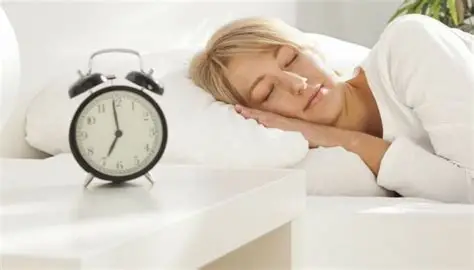In our fast-paced world, consistently getting enough sleep can feel like a luxury. But the truth is, it’s a non-negotiable foundation for good health. For most adults—myself included—shooting for at least 8 hours a night is key to physical recovery, mental sharpness, emotional stability, and just…feeling like yourself. When we don’t get enough, everything suffers: focus drops, moods swing, immunity weakens, and the risk of chronic illness inches up.
Now, simply lying in bed for 8 hours isn’t the same as getting quality sleep. That part requires some intention. The guide below lays out a straightforward, step-by-step way to level up your sleep hygiene and actually reach that well-rested state night after night.
Step 1: Establish a Consistent Sleep Schedule
Your body likes rhythm. It’s wired for it. So, when you stick to the same sleep and wake times every day (yes, even on weekends), you help reinforce your internal body clock—your circadian rhythm.
- Figure Out Your Ideal Bedtime: Start with your wake-up time and work backward. Need to be up at 7:00 AM? Aim to be asleep by 11:00 PM.
- Stick With It: The more regular your schedule, the more your body catches on, making it easier to doze off and wake up without an alarm.
- Make Small Shifts: If your current routine is way off, don’t overhaul it overnight. Adjust in 15-30 minute increments until you land where you need to be.
Step 2: Optimize Your Sleep Environment
Where you sleep makes a big difference in how well you sleep. A few tweaks can go a long way.
- Darken the Room:
- Block light with blackout curtains or shades.
- Cover up or unplug any glowing LEDs.
- Cool It Down:
- The sweet spot is generally 18-22°C (65-72°F).
- Use breathable sheets and a mattress that doesn’t trap heat.
- Quiet Matters:
- Try earplugs, white noise machines, or fans to mask disruptive sounds.
- If racing thoughts are the issue, journaling before bed might help.
- Comfort Counts:
- A supportive mattress and pillow setup can make all the difference.
- A clean, uncluttered space can help your mind unwind.
Step 3: Develop a Relaxing Bedtime Routine
Wind down with purpose. Having a regular pre-sleep ritual helps tell your body it’s time to shift gears. Aim to start about 30-60 minutes before lights out.
- Dim the Lights: Lower lighting throughout your home an hour or two before bed.
- Unplug from Screens:
- Shut down electronics at least 1-2 hours before sleep. Blue light delays melatonin release.
- If screens are unavoidable, use night mode or wear blue light blocking glasses.
- Try Calming Activities:
- A warm bath or shower.
- Reading a paper book.
- Gentle stretching, yoga, or breathwork.
- Listening to soothing music or a low-key podcast.
Step 4: Manage Diet and Stimulants
What you eat and drink affects your sleep more than you might think.
- Ease Off Caffeine:
- Cut off coffee, tea, soda, chocolate, and energy drinks 6-8 hours before bed.
- Rethink Alcohol:
- Sure, it might make you sleepy at first, but it messes with REM sleep and can lead to fragmented rest later.
- Lighten Up Late Meals:
- Avoid heavy, rich, or spicy meals close to bedtime to prevent discomfort.
- Try to finish eating 2-3 hours before hitting the hay.
- Hydrate Smartly:
- Drink plenty during the day, but taper off in the evening to avoid bathroom wake-ups.
Step 5: Incorporate Daytime Habits for Better Sleep
Good sleep starts when you wake up. What you do during the day sets the tone for your nights.
- Move Your Body:
- Aim for regular physical activity—most days of the week if you can.
- Just skip the late-night HIIT sessions; they can be too stimulating.
- Soak Up Natural Light:
- Morning sunlight helps regulate your circadian rhythm and improves alertness.
- Nap Wisely:
- Keep naps short (20-30 minutes) and early in the afternoon. Long or late naps can mess with nighttime sleep.
- Tame the Stress:
- Chronic stress wrecks sleep. Practice mindfulness, journaling, or breathing exercises throughout the day.
- Jot down worries earlier in the evening so you’re not carrying them into bed.
Step 6: Monitor Your Progress and Be Patient
Sleep improvement doesn’t happen overnight—literally. Give it time.
- Keep a Sleep Diary: Track your patterns to spot what’s working and what isn’t.
- Stay Consistent: That’s the magic word. Habits take time to stick.
- Listen to Your Body: Be open to adjusting things based on how you actually feel.
If you’ve tried all of this and still find yourself tossing and turning, or suspect something deeper (like sleep apnea or chronic insomnia), don’t hesitate to reach out to a healthcare provider or sleep specialist. Sometimes a bit of professional insight makes all the difference.
Frequently Asked Questions (FAQ)
Q1: How much sleep do adults really need? Is 8 hours a magic number?
Eight hours is a helpful benchmark, but it’s not one-size-fits-all. Most adults need somewhere between 7 and 9 hours. The real test? Waking up refreshed, alert, and not desperately needing caffeine to function.
Q2: Can exercising too close to bedtime affect my sleep?
It sure can. Vigorous exercise revs up your body temperature and nervous system. That stimulation can delay sleep. Try to finish workouts at least 3-4 hours before bed. Lighter movements like stretching or slow yoga are usually fine.
Q3: How does blue light affect my sleep, and what can I do about it?
Blue light suppresses melatonin production, which messes with your circadian rhythm. Avoid screens 1-2 hours before bed, use night mode, or consider blue light glasses.
Q4: Does alcohol help me sleep better?
Not really. It may knock you out initially, but it fragments your sleep and cuts into REM, the stage important for memory and mood. It also increases nighttime bathroom trips.
Q5: What is “sleep hygiene,” and how does it relate to getting 8 hours of sleep?
leep hygiene is the term for all the healthy sleep habits we’ve discussed—routine, environment, diet, and stress management. Nail those down, and you’re setting yourself up for not just more sleep, but better sleep.





